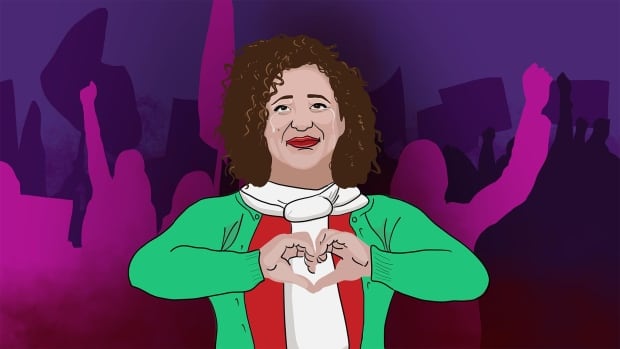
This First Person article is the experience of Atena Barforoushi, a chef and activist in Montreal. For more information about CBC’s First Person stories, please see the FAQ.
I didn’t only have to cover my hair and my body in Iran. I had to hide my voice, my dreams and my femininity — from the time I was a child until I left the country at age 36.
The oldest of three siblings, I was born in 1978. Just one year before the Islamic revolution.
I can remember moments from those early years. When I was around four years old, my mother took me to a small park in front of our home on a quiet street in the city of Babol. My mother did not yet wear the hijab, and I remember her hugging me and running into our home when she heard someone passing by.
I was with her when she was stopped by the morality police in the years after, for wearing nylons or because her headscarf was too thin. Once, she was forced to buy thicker socks before the police would let her go.
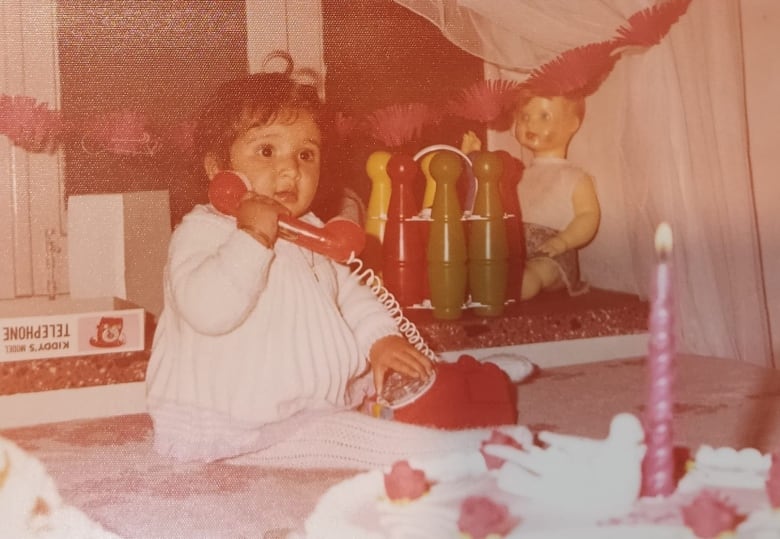
I felt my heart break over the thousands of political prisoners executed in 1988. I heard my parents’ worried conversations about friends or colleagues who went missing — some executed. It was a trauma that I didn’t understand until a key figure in the executions was sentenced in Sweden last spring.
After so many years, I still cried and cried.
The trauma of growing up under this regime can show up anywhere. When I took part in a bicycle tour around the island of Montreal last summer, I told a friend that at home I hadn’t been allowed to ride a bike since I was nine. I thought about being caught by police as a teen, when I had borrowed my cousin’s bike for a ride. Not only was I punished by the morality police, but also I was punished by my family.
Women’s bodies should be covered. They stimulate men! That was always the given reason.
My younger brothers could go out with friends, have girlfriends, leave home, have sleepovers, travel — so many activities that I couldn’t take part in. Whenever I complained, I always heard the same response: they are boys, and you are not allowed as a girl.
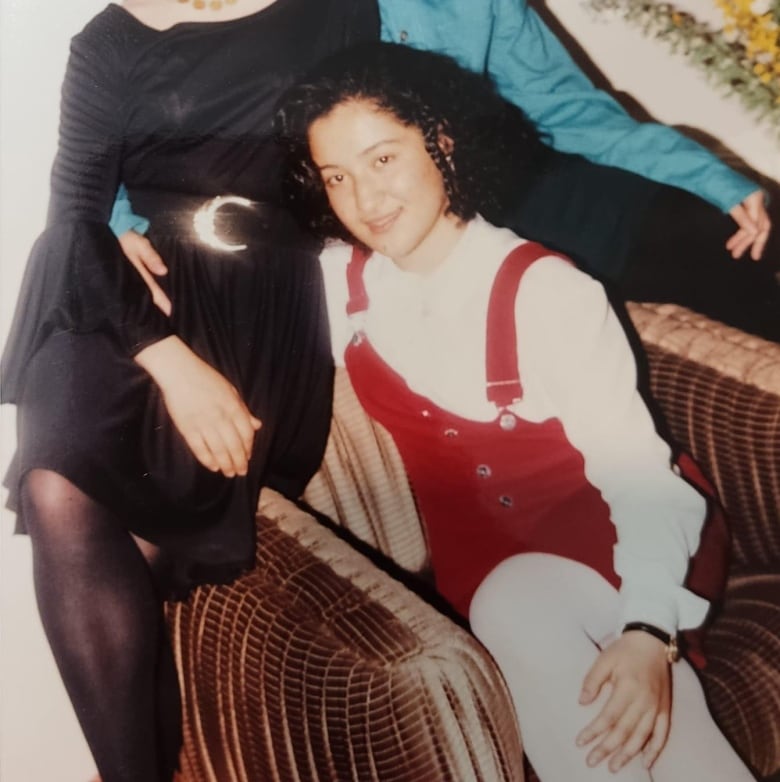
My brothers told me that they wanted what was best for me when they tried to control what I wore, who I saw and where I went. They said they didn’t want me in trouble — but they were influenced by religious, discriminatory brainwashing coming from schools, media and society as a whole. Reciting prayers and reading religious texts was mandatory. We had to chant “Death to America, Israel and Europe” every day — the regime creating imaginary enemies to keep us disconnected from the world.
True self confined to the home
My life in Iran as a teenage girl was filled with dark days. Even our clothing had to be dark. At school they checked our shoes and socks for colours. We were not allowed to listen to music, dance or sing. Men freely teased us as we walked by.
And the morality police were everywhere — harassing us over hijab, or for talking and laughing with our friends on the way home from school.
Like so many others, I was forced to live a dual life. My love of music, fashion and colour was confined to the home. In public, I had to pretend I was someone else.
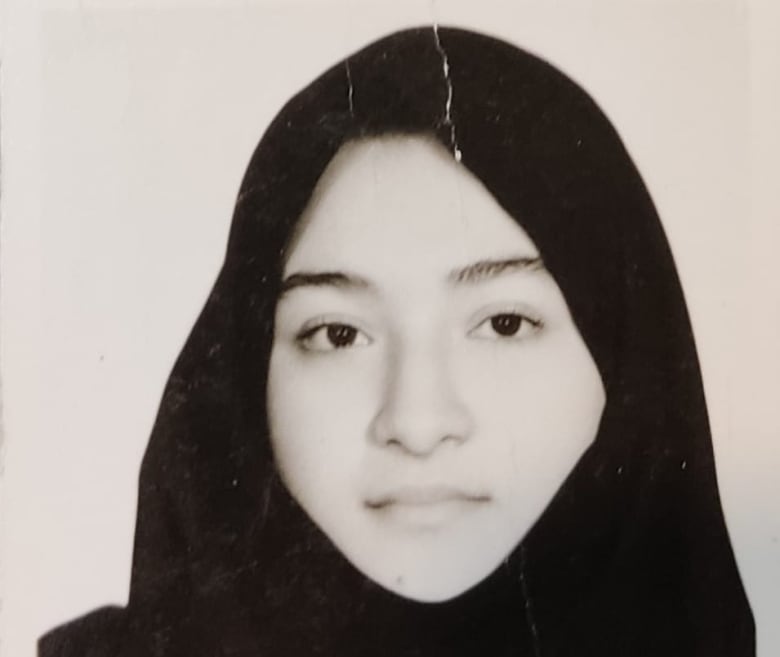
I was imprisoned for the first time at age 14. I was at a friend’s party and the police broke in, beating us and holding us for three nights because both girls and boys were there. I was punished with 75 lashes — five for me and the rest paid as a fine by my parents.
After that, life became even darker in Babol. It felt like I was under a magnifying glass everywhere. I was not allowed to go anywhere alone.
A year later, I was again arrested while skipping class to see an art exhibition — but my offense was walking with a male friend. I had to sign a paper saying we intended to get married so that I’d be released.
I felt I needed to study in another city to live with some freedom. At first, it was exciting to live alone and study in Mashhad, far from Babol. But both the city and the university were very religious, and it soon felt suffocating and terrifying.
Girls had to sit behind the men, which was humiliating and also made it hard to see. And I was arrested again, just because a classmate gave me and three other students a ride in their car. I spent days in a room with people arrested for serious crimes because I didn’t give the police my parents’ contact information. I sold a gold necklace I was wearing as payment to be released.
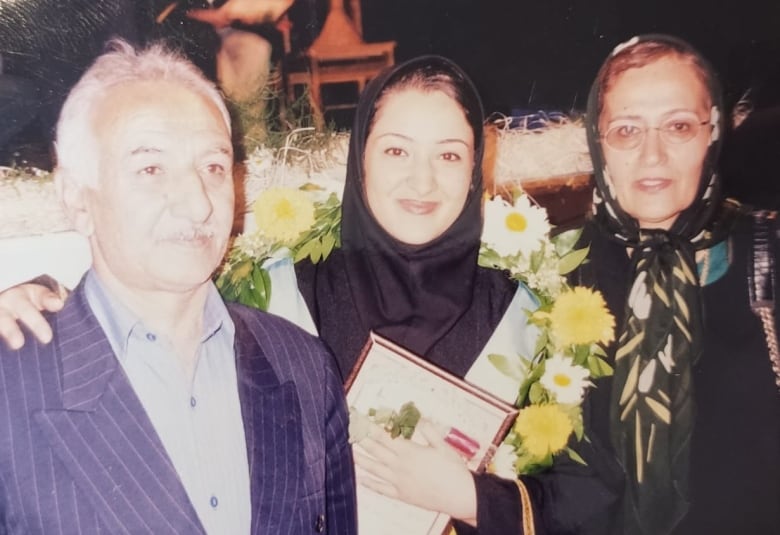
I graduated and worked different jobs, but was fired a few times for not following their Islamic codes. I worked as a high school teacher, and I saw students focusing not on their studies but on how to avoid all the restrictions imposed on them, like I had. I saw them sometimes fall into drugs or harmful relationships. Many saw little hope in their future.
After four years of teaching, I was fired for not wearing a proper hijab.
For decades, I lived in a country filled with distrust, separation, suspicious murders and executions. A country that wanted to kill the hope and happiness of its people — its future becoming ever darker. Anyone who protested or criticized the authorities was considered anti-religion, anti-system and anti-revolution, and the sentence was execution, imprisonment and torture.
I was among the protesters in 2009 when we filled the streets to speak out against election results we knew had to be fraudulent. A woman beside me was beaten, and I ran away to find safety. It was one of the scariest things I could see. Later, fire trucks washed the blood from the street. It made me sick and depressed — and I opened an immigration file to move to Canada the same year. But I promised myself that I would be a voice for my people whenever it’s needed.
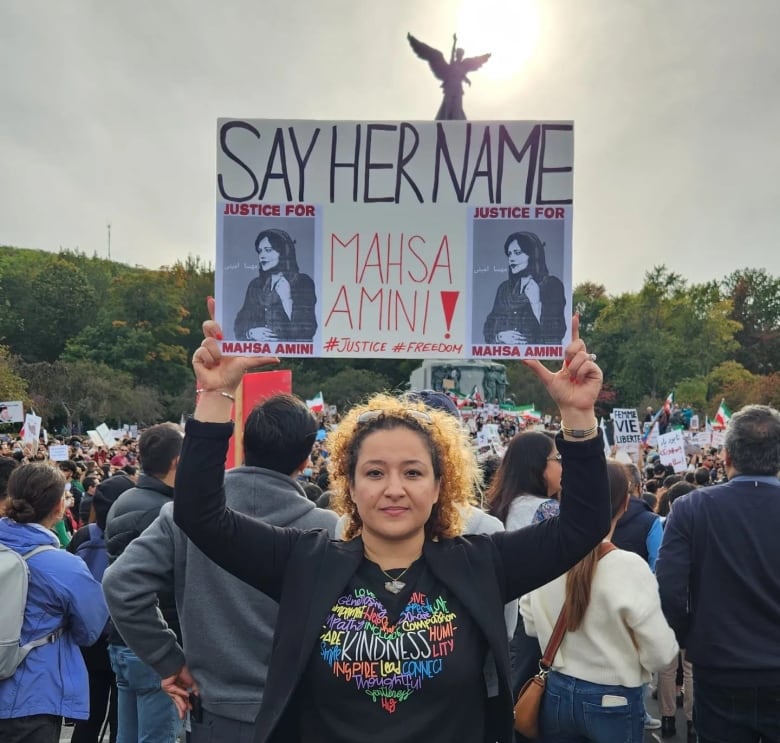
When I came to Canada in 2014 and felt the wind blowing through my hair outside, I worried that I’d forgotten my headscarf at home. But then I’d remember where I was, and that sensation made me really feel the freedom I had here.
At happy summer festivals, I could dance, dress up and be myself. And I saw humanity, kindness and love in the smiles of the people around me. I didn’t feel like a stranger among them. I met good friends who I invited into my home to experience Iranian food and culture.
Cooking Iranian food was like therapy for me. It kept me in touch with my roots and memories of my old life, while connecting me with people in my new home. I learned, at a table filled with Iranian food, that no country, religion, culture or skin colour should block off one person from another. That no matter your background, we all share the same language of love.
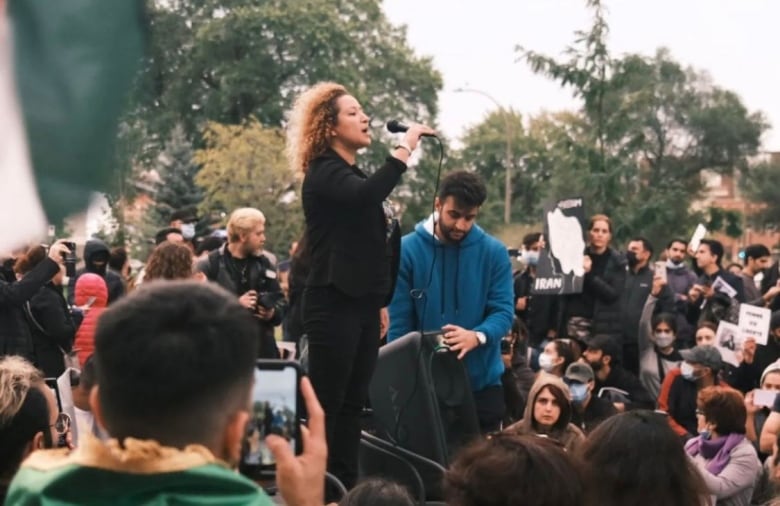
During the pandemic, I learned more about the plight of people around the world — Canada’s treatment of Indigenous people, the struggle of Afghan girls, the war in Ukraine — and I saw that we are all in one humanitarian struggle.
There are still girls and whole families back home who live in black and white. Those that lived through the bloody November of 2019, the downing of Flight 752 and the oppression faced by demonstrators today. For the people in Iran and everywhere else, we need more compassion in this world. I am now working to help build those connections.
CBC Quebec welcomes your pitches for First Person essays. Please email [email protected] for details.